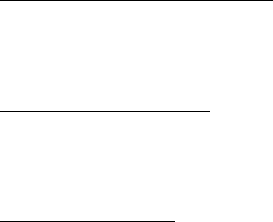
Chemistry 540: STATISTICAL MECHANICS IN CHEMISTRY Spring 2024
Instructor: Prof. Oleg Prezhdo Office: SSC 414
E-mail: prezhdo@usc.edu
Required Textbooks “Statistical Mechanics” by Donald McQuarrie (chapters 1-11)
“Statistical Mechanics” by David Chandler (chapters 5, 8)
“Chemical Dynamics in Condensed Phases” by Abraham Nitzan (chapter 11)
Lecture Tuesday, Thursday 11:00am to 12:20pm; KAP 140 (3620 S Vermont Ave)
Office Hours Tuesday, Thursday 1:00pm to 2:00pm; SSC 414
Goal The goal of this course is to introduce the basic concepts of Statistical Mechanics and
to consider its applications to atomic and molecular systems, as they are encountered
in chemistry. The course starts with a brief review of quantum and classical
mechanics, thermodynamics, and statistics, considers in detail the canonical
ensemble, and moves onto other ensembles and a variety of simple applications.
Several deeper and more complex topics and applications of statistical mechanics in
chemistry will be covered towards the end of the class.
Other Recommended Textbooks Norman Davidson “Statistical Mechanics”
Linda Reichl “A Modern Course in Statistical Physics”
Your Favorite Undergrad Text McQuarrie&Simon “Physical Chemistry: A Molecular Approach”
Peter Atkins “Physical Chemistry”
Thomas Engel, Phil Reid “Physical Chemistry”
Topics:
I. Statistical Mechanics Basics:
Chapters 1-5 of McQuarrie, including Introduction & Review; Canonical, Grand-
canonical, Micro-canonical Ensembles and Fluctuations; Ideal Monoatomic Gas.
II. Selected Applications:
Chapters 6-9, 10.5, 11 of McQuarrie, including Diatomic and Many-atomic Ideal
Gases, Crystals, Chemical Equilibrium, and Classical Statistical Mechanics.
III. Advanced Topics:
Chapter 5 of Chandler, Phase Transitions, Ising Model, Mean-Field Theory
Chapter 8 of Chandler, Chapter 11 of Nitzan, Linear Response Theory,
Correlation Functions
Assessment Homework (one problem set per week, due Tuesday before class) 100%
Every week a comprehensive problem set will be assigned based on
the topics covered in class in the prior week. If you complete all
homework problems you will get an A. If you miss some problems
or problem sets, the grade will be lower.
You are welcome to use any resource available and discuss with your peers,
but you cannot submit solutions that are fully identical with other students.
